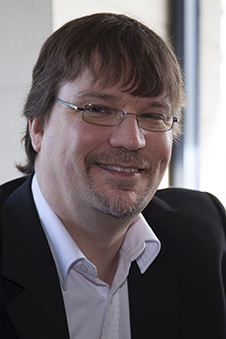Almost a third of middle-aged New Zealanders have tried methamphetamine at least once, according to a new University of Otago, Christchurch study looking at the link between using the drug and violence in the general population.

Professor Joe Boden.
The study found those who used methamphetamine at least weekly were between two and five times more likely to be involved in violence, whether it be as a victim or as the perpetrator, than those who had not used it at all. People who had used the drug once or twice were more than 60 per cent more likely to be involved in violence during the same time period they were using the drug, compared with non-users.
The study was recently published in the Drug and Alcohol Dependence journal.
The Christchurch Health and Development Study is a research group based at the University of Otago, Christchurch. Its researchers have tracked more than 1,000 people since their birth in Canterbury in 1977. Its researchers asked participants at ages 21, 25, 30 and 35 about their use of amphetamine/methamphetamine as well as involvement in violence, either as a victim or perpetrator.
They found:
- Twenty-eight per cent of participants reported using methamphetamine at least once between the ages of 18 and 35
- Almost 12 per cent of study participants had used the drug but never more than one or two times a year
- 11 per cent used the drug at least monthly at some point
- 4.9 per cent of participants reported using the drug at least weekly for a period of time between 18 and 35 years of age
- Compared with people who had not used the drug at all, those who used it at least weekly were more than twice as likely (2.28) to be the victim of intimate partner victimization; and almost five times (4.84) more likely to be the perpetrators of violence
- Compared with those who had not used the drug at all, those who had used it at least once were 60% more likely to be either the victim or perpetrator of violence
Director of the Christchurch Health and Development Study Professor Joe Boden says this is the first time the use of methamphetamine and its links to violence have been studied in a longitudinal, or life course, research group.
International research and intelligence showed global drug supply networks originating in Asia have broadened their reach in the last decade and are now trafficking more pure crystalline forms of methamphetamine, Professor Boden says. With this has come a greater burden of methamphetamine harms and the perception of harms, he says.
“It has long been suggested that amphetamines increase the risk of violence perpetration and victimization, but evidence thus far has shown only evidence of association, rather than a direct causal link.”
There was a need for robust evidence on the link between methamphetamine and violence in our New Zealand communities. Other studies have been done in those with either mental illnesses or those addicted to the drug, but not in the general population, he says.
One of the benefits of the Christchurch Health and Development Study is the wide range and depth of data it had collected over the course of its participants’ lives. This allows the researchers to more precisely estimate the amount of violence and related harm that can be attributed to methamphetamine use, Professor Boden says.
The findings show use of methamphetamine is common, as observed in the study’s cohort of middle-aged New Zealanders. According to Christchurch Health and Development data, methamphetamine is the third most common illicit drug after cannabis and ecstasy, Professor Boden says.
“Some violence is likely associated with involvement in the drug trade, but our study findings indicate that reducing rates of methamphetamine use in the population overall would result in decreased incidence of violent assaults.”
He cautions while methamphetamine use increases the risk of involvement in violence most people who used the drug did not engage in violence or experience violence in others.
For further information or an interview with Professor Boden please contact:
Kim Thomas
Christchurch senior communications advisor
University of Otago
Mob +64 27 222 6016
Email kim.thomas@otago.ac.nz
FIND an Otago Expert
Use our Media Expertise Database to find an Otago researcher for media comment.